- Home
- John Ellsworth
Sakharov the Bear (Michael Gresham Legal Thrillers Book 5) Page 12
Sakharov the Bear (Michael Gresham Legal Thrillers Book 5) Read online
Page 12
She is dropped at the American Embassy that snowy noonday and by one o'clock she has passed all the ID tests—without any papers or pass cards—and she is back with her team. The last time there, the Moscow Station Chief Edward R. Henshaw was gunned down by a high-powered rifle, and in the chaos that followed she fled with Russell Xiang for the green house. That all seems like a dream to her now as she sits in the lounge and awaits new ID, keys to her flat, and money.
Then comes an intensive debriefing. She tells her manager the entire story, beginning with the raid on Henrik's house, the shootout, and finding the bill of lading for the weapons and munitions. They ask more questions and she tells them about the green house and the FSB raid where she and Russell were taken captive. She asks her manager how the FSB could have known she and Russell were hiding there and he looks at his chief and there is a moment of understanding, but then neither one answers her question. Then they ask her about jail, about court, about the beatings—especially whether the bruises and breaks and dental injuries were photographed and preserved and she answers yes, remembering that those things were done, especially the photographs. Of course, they all agree, yet because it is a Federation hospital those same artifacts proving the extent of her injuries could just as easily disappear if the FSB gives the word. Whereupon, a photographer and medical team are brought in and an ad hoc exam performed and photographs are taken for the CIA's files.
When it is all said and done, Anna Petrov wants only to go home and fall into Rodney’s arms then draw a bath and sit in a tub of hot water and shut her eyes.
With her cast outside the tub, of course.
Chapter 22
Michael Gresham
The guard makes himself understood. He does this by making the universal hand sign for mouth talking, two mouths talking, two hands going back and forth. I have a visitor. Clever, I'm thinking. So I say, "Fine, take me to this visitor, please." If nothing else, it's a chance to get out of the part of the Moscow Jail that is unheated—the cells and holding tanks, and into the part that is heated—the administrative offices and the visitors' room.
He follows me as we make our way through corridors, at last coming to a door that is painted fire engine red and which has only buttons, no handle. The guard comes around me and clicks several numbers—five in all, I believe—and the door swings open on a pneumatic system. Warm air immediately blasts my face and I now leave the penal zone.
He continues guiding me along from behind me, and I quickly learn the Russian words for right and left and straight. Finally we make the last right and find ourselves in a small gymnasium type of room, with high ceilings and clerestory windows. Arranged one after another are booths that back up to the wall. He directs me to booth nine and pushes me inside. The setup is immediately obvious. Sit down, pick up the phone from its wall mount, start talking.
On the other side of the glass sprawls a man maybe in his early forties or late thirties, leaning his chair back on two legs. He greets me in English through the phone system.
"Hello, Mikhail. We'll be speaking English so the eavesdroppers can't understand."
"Hello. Who are you?"
"My name is Anatoly Palatov. I work for the Russian government."
"You have really good English for a Russian. If I didn't know better I'd guess Texas, maybe Arkansas."
"No, Leningrad by birth. Now, I'm here because the government wants to help you."
"The Russian government wants to help me?"
He smiles and I can see that his smile is anything but Russian: nice, neat teeth, the result of American orthodontia, certainly, without the metal fillings and shiny silver crowns so favored by the Russians. But, if he says he's Russian, so be it. Something deep inside tells me to give up that line of questioning. After all, FSB is on the line with us. A silent party, but there nonetheless.
"I'm glad your government wants to help me. Believe me, I have done nothing wrong."
"We know that. We've seen the error of our ways. So I'm going to post bail for you. You'll be going home today."
Tears come to my eyes, I'm so relieved. Right then if I could reach through the Plexiglas and kiss him I would. Home! Away from the paralyzing cold, away from a shelf of concrete for a bed without bed covers—especially without any sort of blanket. Plus there are four of us in that six-by-nine cell, a ceramic hole in the floor for all body functions, and a window painted over with black paint and no light source at all. The only time we can see anything—and that is dimly—is when the door will suddenly fly open and the guards jolt us to attention. Then we have momentary light enter the door and we quickly look around to see with our eyes what we have previously have seen only with our hands, fingers, and feet. But now I'm going home.
"What time today will I go?"
"Within the hour. I've already posted the notice of bail, which has to be submitted one hour before the actual bail so objections can be made, if any. There won't be any objections because objections can only be made by the government and as far as these people are concerned I am the government. You're maybe a half hour to an hour from leaving. There will be a black government automobile parked out front to take you home. It has small Russian federation flags on the front bumpers. Just climb in the back. The driver already knows your address."
"Incredible. How can I thank you for this?"
"Really? Do a great job for your client. The government wants to see justice done. So go to bat for him and knock it out of the park."
Knock it out of the park? If that isn't down-home American, I don't know what is. Then it dawns on me. He's giving me clues with some of this.
"I'll be sure and knock it out of the park, Mr. Palatov. And I will do a great job for my client. That's all I've ever wanted to do. Now, will you be in touch with me again, or is this the end of it?"
"This is it. You're out, the court has been notified it is to give up all questions concerning your nationality and fitness to practice before it, and you will proceed from here with a clean slate. Congratulations, Mr. Sakharov, you win."
"I win," I say in wonder.
"Say, you're not Sakharov the Bear are you by any chance?"
"Not that I know of. Why?"
"Oh, its a legend that this Sakharov comes into Russia from the west every hundred years and destroys the enemies of the Russian people. You'd know if you were he."
I smile. "No, I have no intention of destroying anyone. I'm a peaceful man from Moscow."
"I'm sure you are, Mr. Sakharov. Well, that's all I came to say, so farewell, my friend. And good luck with Mr. Xiang."
With that, he stands, replaces his phone, and turns away, buttoning his overcoat as he leaves me there. A sudden rap on the door behind me startles me back to reality and the same guard pulls open the door. I follow him out into the hallway and this time, instead of turning back left from whence we came, we proceed straight ahead.
Then I know. I'm on my way home.
Two hours later I'm discharged. There was a ton of paperwork and I have signed at least twenty forms, some of which required that I swear under the laws of perjury that I was who I said I was—Mikhail Sakharov. So be it, I thought, and continued signing my name.
The coat I had stolen from the man in the courthouse is returned to me. For the first time, I notice it is at least two sizes two small but I pull it on anyway. It will be below freezing outside and I will use whatever they give me.
Out the main doors I hurry, and stand and pause at the top of the stairs. The waiting vehicle is one of many in a long line at the curb. But it is the only vehicle with the small flags of state. So I head down there two steps at a time.
The back door swings open as I approach and I climb inside.
And to my great surprise there is my benefactor, Anatoly Palatov, who just bailed me out of jail. Wonder of wonders. He moves to the far side of the backseat, giving me room to unfold my six-foot frame.
"So," he says, evidently amused with himself, "we meet again."
"An
d why is that?"
"Drive on," he says to the man at the wheel. "And raise the privacy panel, please."
He waits until the panel is fully raised between us and the front seat.
"I'm an employee of the Russian government, as I told you, Michael Gresham. But I also moonlight for your government."
"Moonlight? As in—what?"
"You have certain agencies that require certain inside information in Russia. I try to help them procure that information."
"You're CIA, correct?" I blurt out.
He smiles and brushes air at me. "Silly man, no one in Russia is CIA. We deported all those cowards years ago. Only official Embassy state department people remain in the Russia of today."
"Just like the KGB left Washington? Is that it?"
He ignores my comment.
"Your government wants you to free Russell Xiang. Your government is available to help you do that with anything you need. Need additional counsel? Just say the word. Need money for an additional investigator or five? Just say the word. Need an office with full staff? Snap your fingers and it's done. Need bribe money—"
"Say the word. So here's what I need. I need you to bail my client out of jail. It is miserable as all hell in there and I need him outside where he can help me."
Anatoly purses his lips and begins shaking his head. "That is not so easy. This case is under the microscope. Every Russian citizen wants your client put to death for the killing of a Russian agent, even though he was an FSB agent. We're funny that way. Loyal to the extreme even when it's unhealthy for us."
"No excuses if you are who you say you are. Bail him out today or just stop this car and drop me right here. We'll go our separate ways if you won't help me."
His face contorts but then relaxes and his charming smile returns. "Let me make some calls. We'll see if the wolves have abated somewhat by now. Time and distance are great healers, yes, Michael?"
"And stop with the Michael. Call me Mikhail at all times. I don't want to do the jail thing again, not ever."
"Mikhail it is, then."
We drive on. His driver knows the way to my flat without a word from me.
Someone has been doing their homework.
Clearly it is time to move elsewhere.
Chapter 23
Michael Gresham
The CIA had a rule against employees associating in public. The need for the rule was obvious.
On January 2, four software engineers violated the CIA rule by eating breakfast together at the IHOP on Stafford Street, just twenty miles from the CIA's new location in Virginia. The four engineers comprised the CIA cyberwar team known as CyWar. They were there to celebrate a silent success. They had shut down Russia’s ability to make war all of New Year’s Day. To do so, they had reprogrammed Russian nuclear codes into unintelligible gibberish incapable of launching a nuclear strike. On that day, Russian nuclear capability had ceased to exist for twenty-two hours while the Russians unscrambled their software.
Waiting in their booth for a waitress to appear, the four engineers took a poll. Chances of being caught while associating were ten percent, said Stephen Taft, an expert in algorithms; Ainsley Burshtin, an expert in cyber-mathematics, set it at fifteen percent. Always the outlier, Samuel T. Washington, an expert in Russian cyber-warfare put it at negative ten—though only he seemed to know what that meant, exactly. Not to be outdone, Melody Winston, an electrical engineer, surprised them all with a well-reasoned one-in-four chance of being caught on their illegal outing, because the CIA, in the District of Columbia and its environs, had eyes everywhere. The city was scrutinized at every turn by video cameras that missed nothing. A seat of government required as much. When Melody shared her rationale, the three men involuntarily hunched forward and lowered their faces from view.
The waitress appeared wearing a Christmas corsage of bells and berries and holly. Melody took one look at her and said, “Don’t tell me: you’re the same waitress whose Christmas lights are still up in July.” The humor passed unnoticed. Menus were handed out. The diners studied the tasty offerings. Two Garden Omelets and one Country Omelet for the men, while Melody ordered a fruit plate with yogurt. Coffee was poured, orange juice was chugged, and pancakes were delivered just minutes later. A Lazy Susan of syrups arrived and soon the blues and browns and purples of the sweet stuff ran together with real butter. All was well.
The team relaxed as they gobbled down the pancakes. No CIA agent had been killed in the United States in years, save for the Qazi shootout on January 25, 1993. But that was an anomaly. That attack was long thought to be a one-and-done. It took place outside the Central Intelligence Agency headquarters in Langley, when a gunman killed two CIA employees and wounded three others. The perpetrator was captured, put on trial, and was found guilty of capital murder. He was executed by lethal injection in 2002. The FBI said his fate flashed out a warning to all who would hunt Agency employees and that was why there had not been a single instance since. But the CIA knew better: they had been lucky, was all.
The agents' breakfast was only expected to last thirty minutes. As they cleaned their plates and washed everything down with coffee, small talk invariably turned to their work. They discussed, over breakfast, the hack the day before. The cyberattack was payback for the Russians hacking into the certain American computers during the presidential campaign. The CIA meant to cripple Russia's nuclear war capabilities to make a point: Don't Tread on Me. The team's leader, Russell Xiang, had even traveled to Russia to silence a UK agent who, it was reported, was willing to sell the Russians the details of the upcoming cyberattack.
Blood sugars running high after the syrupy pancakes, the CIA employees fell into a kind of quiet torpor. Thoughts were mostly on New Years goals at the Agency. They failed to see the diner who followed them into the IHOP and chose the booth next to theirs. They failed to see that he ordered only coffee, which he then left untouched. His ID said his name was Gorkin. He brought into the restaurant, under his Burberry, a Remington 870 Police Magnum. The shotgun was fitted with the shortened barrel, complete with ATF tax stamp, just not in his real name. The waitress tried a second time to interest Gorkin in a breakfast menu; she needed a tip from his table but he waved her off. "Not for me," he said in halting English. "Maybe later you should try again, okay?"
Gorkin's cell phone pulsed. A text was waiting. He slipped the phone from his shirt pocket and read:
????
He texted back, Four legs of the snake w/o its head.
Proceed
Gorkin shot a look around the restaurant. Good, no police uniforms. Slowly sliding his hand inside his top coat, he flicked the gun's safety. He watched as the waitress delivered the CyWar team's bill inside a plastic credit card holder. A card was handed over. The waitress spun on her heel and headed for the register. Gorkin drew a deep breath and suddenly erupted up out of his booth, stepping up beside the foursome and at the same time swinging the shotgun up and out of his coat. He fired four magnum rounds. Faces and heads were blown away, flesh and brain and bone matter splattered up against the window, or what was left of it after the second blast blew it out into the parking lot. Clutching the shotgun in his right hand, he calmly headed to the entrance. Without looking back to assess any plainclothes pursuit, Gorkin made his way outside to a blue and white Suzuki GSR motorcycle and swung his leg up and over. The engine caught instantly and the Russian shot out of the parking lot onto Stafford.
Exactly two miles down the road from the IHOP was a strip mall with several small businesses and the Langley Athletic Club. Gorkin nosed the motorcycle into an open spot in front of Terry's Gold and Coins, and parked. He climbed off and, carrying the gym bag, scurried inside the Athletic Club, then slowed his walk so as to not draw attention. Back into the men's locker room he went, stopping in front of an upright locker—one of hundreds—and dialed in the combination. A change of clothes was neatly hung and waiting. Into the locker went the gym bag carrying the gun. Then he quickly changed the shooter’s
outfit for a black pinstriped suit, blue shirt, rap tie, and wingtips. He immediately closed the door and spun the combination, locking it once again. Back outside, he headed in a diagonal across the traffic lane. At the first row, he removed a ring of keys from his pocket and clicked the fob, unlocking the doors of a blue Toyota Corolla. He climbed inside and started the engine. On the windshield was a CIA campus parking/access sticker displaying the familiar eagle and starburst compass points below. It granted Level 1 Security Access to the vehicle, as did the ID card inside the wallet he retrieved from the console and slipped into his inner jacket pocket.
Now he drove north on Great Falls Street and then west on Dolley Madison Boulevard, where he turned onto the CIA campus with its warnings and checkpoints. Along the way he passed a line of protesters holding signs that said CLOSE GUANTANAMO and OBAMA PROMISED. He smiled and began making his way to his designated parking spot.
After parking his Toyota, Gorkin made his way inside the entrance and approached the building security zone. He removed his wallet from his coat and flashed his ID to the card scanner then placed his face against the optical scanner and allowed it to read his retinas.
The ID card said, simply, Anatoly Palatov, Level 1.
The optical software was satisfied, the card scanner was satisfied, and the security bar was raised.
"Morning, Dr. Palatov," said the duty guard. Anatoly Palatov returned the greeting with a smile.
Palatov headed for his office at the rear of the horizontal H that comprised the first of the new buildings.
He was back.
He would go by the White House that night. New Years Eve would never be the same.
Chapter 24

 Girl, Under Oath (Michael Gresham Series)
Girl, Under Oath (Michael Gresham Series)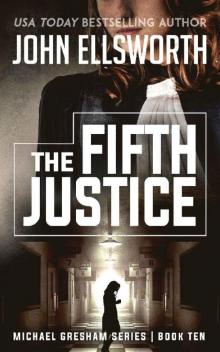 The Fifth Justice (Michael Gresham Legal Thrillers Book 10)
The Fifth Justice (Michael Gresham Legal Thrillers Book 10)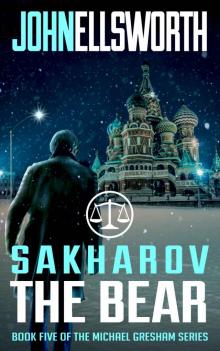 Michael Gresham (Book 5): Sakharov the Bear
Michael Gresham (Book 5): Sakharov the Bear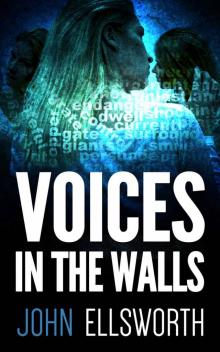 Voices In The Walls: A Psychological Thriller (Michael Gresham Series)
Voices In The Walls: A Psychological Thriller (Michael Gresham Series)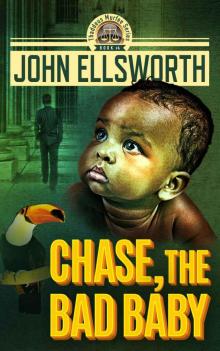 Chase, the Bad Baby: A Legal and Medical Thriller (Thaddeus Murfee Legal Thriller Series Book 4)
Chase, the Bad Baby: A Legal and Medical Thriller (Thaddeus Murfee Legal Thriller Series Book 4)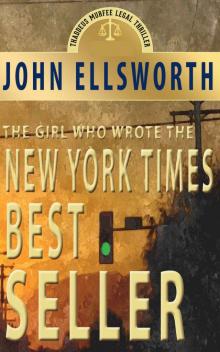 The Girl Who Wrote The New York Times Bestseller: A Novel (Thaddeus Murfee Legal Thrillers Book 8)
The Girl Who Wrote The New York Times Bestseller: A Novel (Thaddeus Murfee Legal Thrillers Book 8)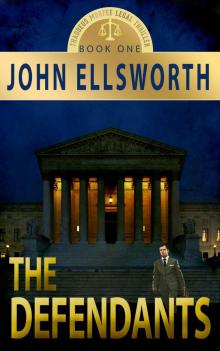 The Defendants: Crime Fiction & Legal Thriller (Thaddeus Murfee Legal Thriller Series Book 1)
The Defendants: Crime Fiction & Legal Thriller (Thaddeus Murfee Legal Thriller Series Book 1) Hellfire (Sisters In Law Book 2)
Hellfire (Sisters In Law Book 2)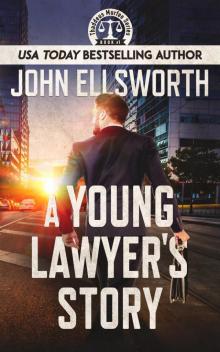 A Young Lawyer's story
A Young Lawyer's story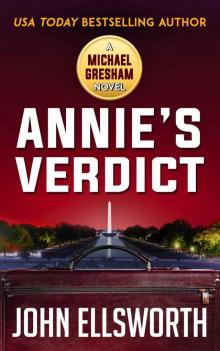 Annie's Verdict (Michael Gresham Legal Thrillers Book 6)
Annie's Verdict (Michael Gresham Legal Thrillers Book 6)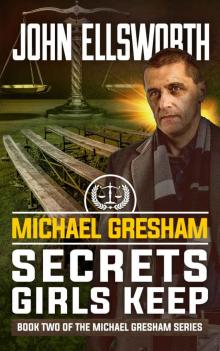 Legal Thriller: Michael Gresham: Secrets Girls Keep: A Courtroom Drama (Michael Gresham Legal Thriller Series Book 2)
Legal Thriller: Michael Gresham: Secrets Girls Keep: A Courtroom Drama (Michael Gresham Legal Thriller Series Book 2)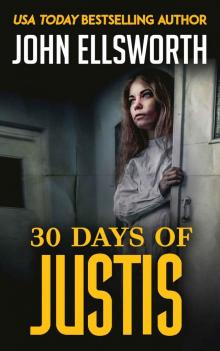 30 Days of Justis
30 Days of Justis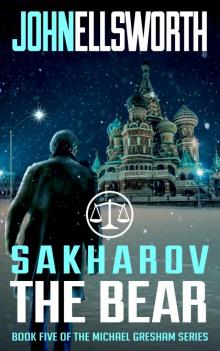 Sakharov the Bear (Michael Gresham Legal Thrillers Book 5)
Sakharov the Bear (Michael Gresham Legal Thrillers Book 5)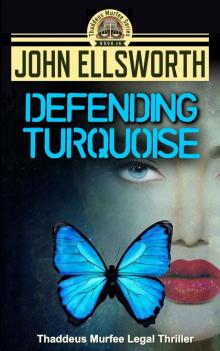 Defending Turquoise (Thaddeus Murfee Legal Thriller Series Book 5)
Defending Turquoise (Thaddeus Murfee Legal Thriller Series Book 5)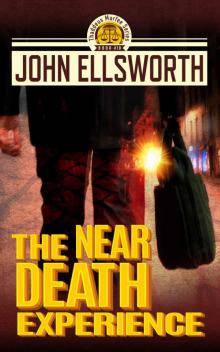 The Near Death Experience (Thaddeus Murfee Legal Thriller Series Book 10)
The Near Death Experience (Thaddeus Murfee Legal Thriller Series Book 10)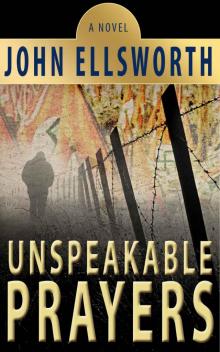 Unspeakable Prayers: WW II to Present Day (Thaddeus Murfee Series of Legal Thrillers)
Unspeakable Prayers: WW II to Present Day (Thaddeus Murfee Series of Legal Thrillers)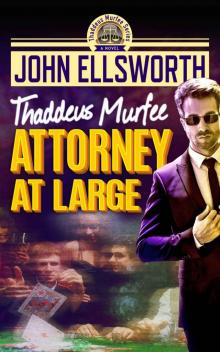 Attorney at Large (Thaddeus Murfee Legal Thriller Series Book 3)
Attorney at Large (Thaddeus Murfee Legal Thriller Series Book 3)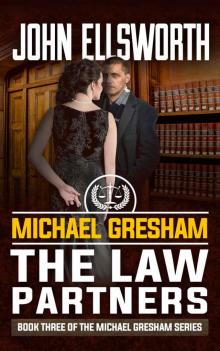 The Law Partners (Michael Gresham Legal Thriller Series Book 3)
The Law Partners (Michael Gresham Legal Thriller Series Book 3)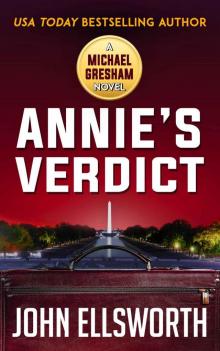 Annie's Verdict
Annie's Verdict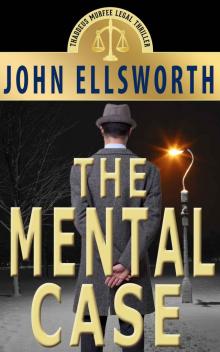 The Mental Case (Thaddeus Murfee Legal Thriller Series Book 6)
The Mental Case (Thaddeus Murfee Legal Thriller Series Book 6)